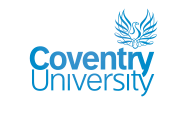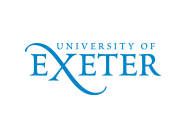

This project has received funding from the European Union’s Seventh Framework Programme for research, technological development and demonstration under grant agreement no 612789

SECOND POLICY SEMINAR SPEAKERS AND PANELLISTS
NEW HORIZONS FOR CULTURAL HERITAGE – Recalibrating relationships: bringing cultural heritage and people together in a changing Europe
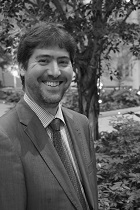 Zoltán Krasznai, RICHES Project Officer, DG RTD
Zoltán Krasznai, RICHES Project Officer, DG RTD
Zoltán Krasznai is policy and project officer at DG Research and Innovation in Unit B6 (“Reflective Societies”). He deals essentially with research on history, cultural heritage, creative industries and European development policy towards developing countries. He holds a PhD in history from the "École des Hautes Études en Sciences Sociales" in Paris. Zoltán is Hungarian. He joined the European institutions in 2005. Before entering the European Commission in 2013, he worked for the European Economic and Social Committee.
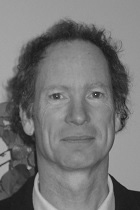 Prof. Neil Forbes, RICHES Project Coordinator, Coventry University
Prof. Neil Forbes, RICHES Project Coordinator, Coventry University
Professor of International History at Coventry University, in the UK, and Co-ordinator of the EU’s FP7 RICHES project - Renewal, Innovation and Change: Heritage and European Society. His research interests and publications lie in the following fields: conflict heritage, contested landscapes and the memorialisation of war; creative archiving and cultural heritage; the processes of financial stabilisation in Europe after the First World War; Anglo-American relations and the rise of the Third Reich; the interaction of foreign policy formulation and diplomacy with the business practices of multinational enterprise during the interwar years. He has played a leading role in a number of EU and UK research projects, including a £1m digitisation project in association with BT and The National Archives. Formerly Director of Research at Coventry University, he sits on a number of advisory boards, peer review panels and other, national bodies, and is chair of the UK’s Research and Enterprise Network for Universities.
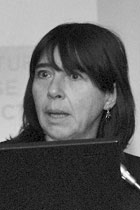 Dr. Antonella Fresa, RICHES Technical Coordinator, Promoter Srl
Dr. Antonella Fresa, RICHES Technical Coordinator, Promoter Srl
ICT expert, Director and Administrator of Promoter SRL, Antonella Fresa has been working on European cooperation projects since 1994. Since 2002, she is Technical Coordinator and Communication Manager of national and European projects in the domains of digital cultural heritage, smart cities, digital preservation, e-Infrastructures. She regularly serves as independent expert for the European Commission, where she has been Project from 1999 to 2002. From 2002 to 2012, she has been advisor of the Italian Ministry of Cultural Heritage and Activities; from its establishment until 2012, she has been Decree Member of the Concertation Table for Research Priorities for Cultural Heritage in Italy between the Ministry of Culture (MiBAC) and the Ministry of Research (MIUR).
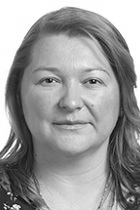 Ms Andrea Bocskor, MEP, Vice-President of the Culture Committee of the European Parliament
Ms Andrea Bocskor, MEP, Vice-President of the Culture Committee of the European Parliament
Member of the European Parliament (MEP) representing Hungary and Vice-President of the Culture Committee of the European Parliament. She graduated in English-History at the Trascarpathian Hungarian Teachers’ Training College. She did her PhD in 2010 at the ELTE-BTK in Budapest. In 2013, she held the title of Candidate of Historical Sciences in Kiev at the Institute of Ukrainian History-National Academy of Science. Before becoming an MEP, she was a docent of the Ferenc Rákóczi II Transcarpathian Hungarian Institute in the Faculty of History and Social Sciences, and Director of the Lehoczky Tivadar Institute in Beregszász. Her main political aim is to represent the Transcarpathian Hungarian minority in the EU, promote the rights of national minorities, the European cultural and linguistic diversity and to ensure the use of minority languages at European level. Moreover, she supports European integration and the political and economic stability of Ukraine.
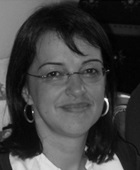 Ms Elisabeth Lipiatou, Head of Unit Open and Inclusive Societies, DG RDT
Ms Elisabeth Lipiatou, Head of Unit Open and Inclusive Societies, DG RDT
Head of Unit Open and Inclusive Societies, DG Research, European Commission. Ms Lipiatou received her diploma in Chemistry from the University of Athens (1983), her Master in Oceanography and Meteorology from the University Pierre and Marie Curie in Paris (1984), and her Master in Computer Sciences applied in Chemistry and Biology from the University Paris VII (1985). She became a Doctor of Sciences in Chemical Oceanography at University Pierre and Marie Curie, Paris, in 1989. Ms Lipiatou has ten years of academic experience in various universities and research centres, including the Centro de Investigacion y Dessarollo (CSIC) in Barcelona, the Ecole Normale Superieure in Paris and the University of Minnesota. Her research and published work were mostly in the field of biogeochemistry and chemical oceanography. She was visiting scholar at Rutgers University and member of the International Panel on Water, Environment and Health of UN University. Ms Lipiatou has sixteen years of experience in science and policy interface at the European Commission, Directorate General Research. She is member of the organising Committee of the Third World Climate Conference and contact person of the European Commission with the Intergovernmental Panel on Climate Change (IPCC).
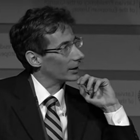 Mr Walter Zampieri, Head of Unit Culture Policy and Intercultural Dialogue, DG EAC
Mr Walter Zampieri, Head of Unit Culture Policy and Intercultural Dialogue, DG EAC
Walter Zampieri is the Head of Unit, Cultural Diversity and Innovation, DG Education and Culture, European Commission. Before taking up his current post, he was deputy head of the coordination unit and assistant to the Director General for education and culture; among his previous positions there is also the secretariat of the Social Protection Committee. Before joining the European Commission, Zampieri was Assistant Professor at University of Central Florida and Visiting Professor and Lecturer at the College of the Holy Cross, Worcester, MA. He holds a PhD in Comparative Literature from The University of Connecticut and attended University of Padua, Italy.
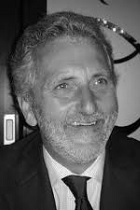 Albert Gauthier, Policy Officer Unit Creativity, DG CONNECT
Albert Gauthier, Policy Officer Unit Creativity, DG CONNECT
Albert Gauthier works at the European Commission in Luxembourg, at Directorate General Connect. The 'Creativity' unit covers a range of activities from funding leading-edge ICT research to innovation and policy support. Research under the ICT programme will explore the potential of information and communication technologies to enhance creative processes in general and in cultural and educational contexts in particular; it will also enhance user experiences with digital cultural resources, including keeping those resources useable at long-term (digital preservation); innovation activities aim at stimulating the up-take of research results in the creative industry; policy support activities - follow-up of the Commission's recommendations on digitisation and digital preservation; promoting Europeana the European Digital Library.
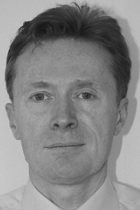 Eric Philippart, Unit Tourism, Emerging and Creative Industries, DG GROW
Eric Philippart, Unit Tourism, Emerging and Creative Industries, DG GROW
Holder of degrees in Government & Economics and Political Sciences & International Relations, as well as a PhD on forecasting, Eric Philippart was visiting fellow at Stanford University, the M.I.T. and the University of Michigan, Ann Arbor (Fulbright). He also benefitted from a post-doctoral fellowship at the University of Cambridge in 1997-98. Having taught in various universities including the College of Europe (1999-2013), he still lectures at the Université Libre de Bruxelles and at the Université de Paris 1 Panthéon-Sorbonne. He also collaborated actively to several European and national think tanks. He authored a number of books and articles on international relations and European integration (Transatlantic relations & Euro-Mediterranean Partnership). European civil servant since 2003, Eric Philippart held various positions of responsibility within the European Commission (Secretariat General, Directorate General Enterprises and Industry – DG ENTR, now DG for Internal Market, Industry, Entrepreneurship and SMEs – DG GROW). He was in particular acting Head of Unit for "Tourism and Cultural Instruments" till December 2014. He is currently working for the new unit dealing with "Tourism, emerging and creative industries" and the Task Force for "services and self-regulation". He is in particular responsible for synergies between tourism and creative / cultural industries, the internationalisation of tourism SMEs and relations with third countries & international organisations dealing with tourism (UNESCO, OECD, …).
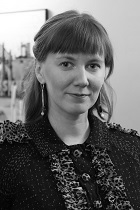 Mirjam Rääbis, Estonian Ministry of Culture
Mirjam Rääbis, Estonian Ministry of Culture
Mirjam Rääbis has worked as a collection coordinator at the Estonian Art Museum and from 2013 been coordinating museum collections in larger scale across Estonia at the Ministry of Culture. Graduated in information science (University of Tartu, 2007) she has been involved with the development of Estonian national Museum Information System since 2008. One of the tasks at the Ministry is to analyze and coordinate museum´s collection policies. She has also been involved in several European projects : DCH-RP, Athena Plus, Europeana Space and Preforma.
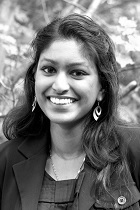 Marie Véronique Leroi, French Ministry of Culture
Marie Véronique Leroi, French Ministry of Culture
Marie-Véronique Leroi is a project manager. She has a background in Natural Language Processing (NLP) and works at the Secretariat General, in the Coordination Service of Cultural Policies and Innovation (SCPCI) of the Ministry of Culture and Communication(MCC), France, in the Department for Digital Innovation (DIN). Marie-Véronique Leroi is responsible for the French national Instance of the MICHAEL project, 'Patrimoine Numérique' and has been leading Workpackages dedicated to terminologies and multilingualism in the following European projects : Athena, Linked Heritage, and AthenaPlus. Within these projects, she has contributed to the development of SCENT for GLAM, a technical platform for the management of terminologies in the perspective of the Semantic Web for institutions from the GLAM sector. She took a part in the national working groups for the Web 3.0 and will coordinate the specific actions and developments that resulted from the MCC's Web 3.0 Roadmap.
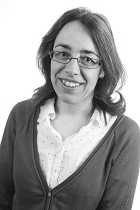 Prof. Moya Kneafsey, Coventry University
Prof. Moya Kneafsey, Coventry University
Professor of Food and Local Development / Human Geography. Her research covers two interlinked themes. The first, Regional, Local and Quality Foods / Tourism and Rural Development critically examines strategies for the valorisation of locally embedded cultural resources such as food, crafts and other heritage products (Kneafsey 2001, 2000). The second, Alternative Food Networks and Citizen Engagement with Food examines the emergence of innovative business models that enable people to ‘reconnect’ with food and build local food economies that are environmentally regenerative and socially just (Kneafsey et al 2008; Kneafsey 2010). Leader of the 'Food and Communities' research theme at Coventry University’s Centre for Agroecology and Food Security and of the 'Communities and Self-Organization for Resilience' research theme at the Centre for Agroecology, Water and Resilience.
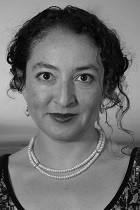 Dr. Trilce Navarrete, The University of Southern Denmark
Dr. Trilce Navarrete, The University of Southern Denmark
Trilce Navarrete is a specialist in the economic and historic aspects of digital heritage. She is currently Posdoc researcher at the University of Southern Denmark where she contributes to RICHES, a PF7 EU funded project about innovation and change in the European society. Specifically, she is working on an economic analysis of the impact of digitization and of taxation in the production, distribution and consumption of culture. She has contributed to the creation of the European statistics for digital heritage (ENUMERATE) and has served as advisor for the creation and evaluation of (national) digital infrastructures. Her research has been driven by an interest to understand the processes involved in the (re)use of heritage materials and their role in the transfer of knowledge across time. Navarrete holds a PhD in Humanities, an MA in Cultural Economics and MA in Museum Management. Her work merges theories of economics, heritage and information science to support understanding of digital heritage production, distribution and consumption.
 Dr. Catherine Cummings, The University of Exeter
Dr. Catherine Cummings, The University of Exeter
Catherine Cummings is Research Fellow at the University of Exeter on the EU’s FP7 RICHES project – (Renewal, Innovation and Change: Heritage and European Society). She holds a PhD in museums and collections and has lectured in art and design history, cultural theory and museum studies. Her research interests include the historical and contemporary role of the museum, the representation and interpretation of tangible and intangible cultural heritage and the relationship between contemporary craft and digital technology. Recent research addressed the impact of digitisation on cultural heritage in how we access, interpret, communicate and preserve cultural heritage in a digitised era.
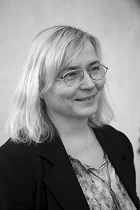 Prof. Monika Hagedorn-Saupe, Stiftung Preussischer Kulturbesitz
Prof. Monika Hagedorn-Saupe, Stiftung Preussischer Kulturbesitz
She studied mathematics, sociology, psychology, and education at the Ruhr-Universität Bochum, at Kings College London, and at the Freie Universität Berlin. Since 1985, she has been a staff member of the Institut für Museumsforschung (Staatliche Museen zu Berlin, Stiftung Preußischer Kulturbesitz), overseeing the annual statistics of all German museums. Since 1994, she has been Head of the department “Visitor-related museum research and museum statistics”, is responsible for several European projects and acts as the Deputy Director of the Institute. Since 2007 she is a member of the Board of the German Museum Association, since 1997 she chairs the Special Interest Group on Documentation (Fachgruppe Dokumentation) in the German Museum Association (Deutscher Museumsbund e.V.). She chairs the information Centres Working Group in CIDOC, the documentation committee in ICOM. In 2001, she was nominated from the German Federal government to participate in the European NRG (National Representatives Group on Digitisation in Culture) and is now a member in the MSEG. She is Professor in museology at the University of Applied Sciences HTW in Berlin/Germany and teaches visitor research.
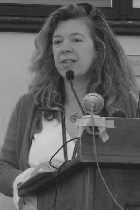 Prof. Sarah Whatley, Coventry University
Prof. Sarah Whatley, Coventry University
Professor of Dance and Director of Centre for Dance Research (C-DaRE) http://c-dare.co.uk at Coventry University. As a researcher and dance artist, her research specialises in the interface between dance and new technologies, dance analysis, somatic dance practice and pedagogy, and inclusive dance. She led the Siobhan Davies archive project (www.siobhandaviesreplay.com), was co-investigator for the Choreographic Objects network project, the Digital Dance Archives project and the Screendance network – all three major projects funded by the AHRC. She led the JISC-funded D-TRACES project, focusing on the embedding of digital resources in the University curriculum, and is a member of the International Education Workgroup for the Forsythe Company’s Motion Bank project. She edits the international Journal of Dance and Somatic Practices and is on the editorial board of the International Journal of Screendance.
Official Media Partner: Digital Meets Culture.
Designed and powered by: Promoter SRL.
